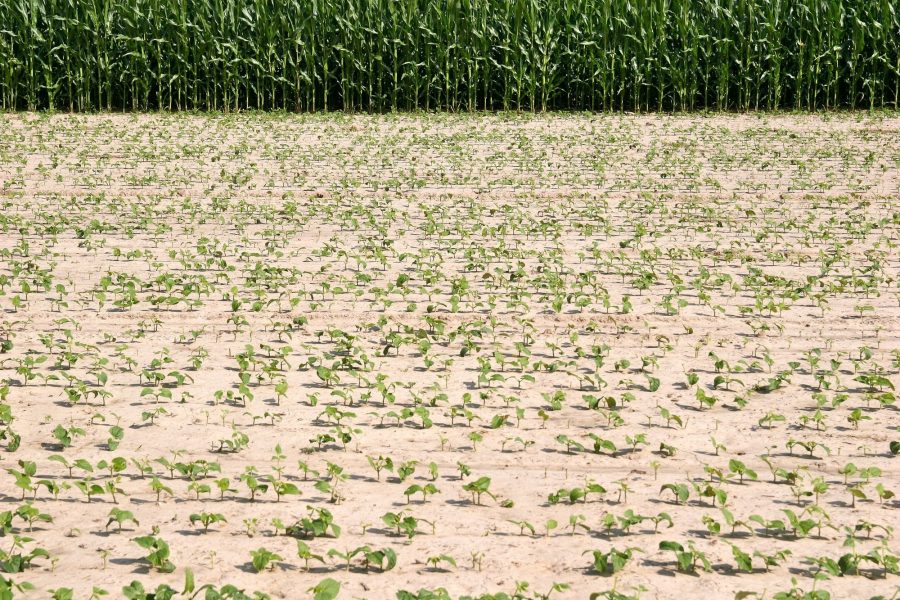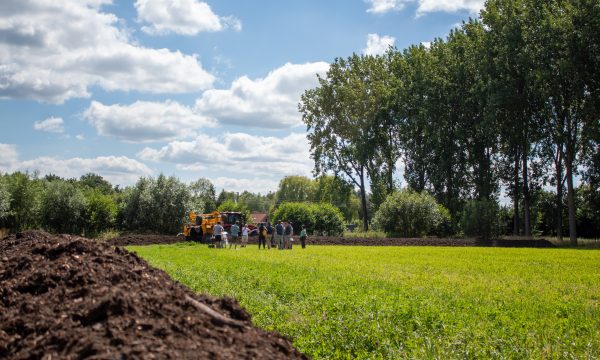Press release Soil passport as a new tool to manage agricultural parcels more sustainably

ILVO has started to create a kind of 'medical record' of its field plots. All soil data - crop rotation, treatments and treatments, analyses, yields and environmental conditions - are compiled. This type of an integrated dataset enables richer data mining, which can provide new insights in the field of sustainable and climate-friendly soil management.
200 hectares
Flanders Research Institute for Agriculture, Fisheries and Food (ILVO) has approximately 200 hectares of trial fields (part of which are organic) for its agricultural research projects and for the normal exploitation of its experimental farm. Filip De Brouwer (ILVO): 'Like every farmer, ILVO sets up a cropping plan every year, based on our needs and the crops that existed in the past. Every single year, a lot of data is collected and updated by the individual researchers. Now that we use precision agriculture, the flow of data (from the smart tractors, equipment, drones, soil scans, etc.) is growing exponentially.'
If the data remains diffuse, the exact influence of each factor or action from the past on the current field performance cannot be fully studied. With the soil passport ILVO therefore wants to get a broader (long-term) view of the natural processes on its experimental fields.
Bart Vandecasteele (ILVO): 'We have known for a long time that the history of soil management can have a strong impact on the present soil condition. What you measure at one moment in one year in terms of chemical soil composition and nutrient balance is often not enough to explain why the soil gives that particular yield and disease or stress sensitivity to the crops. A snapshot is certainly not enough to find the cause and remediation of spatial variability.'
Evolving towards automation
The first step is a digital module that contains soil analyses, soil scans, the history of the field plots and the crops all in one place. ILVO has already set up a multidisciplinary team: soil specialists, data managers, image- and data analysts, GIS experts, crop and climate specialists.
Greet Ruysschaert (ILVO): ‘It’s an interesting scientific exercise. How do you set up a platform like that? Which data are actually useful and which are not? What basis do we use to make decisions for specific soil management? How do we give various users access to the platform?”
Jurgen Vangeyte (ILVO): “At the same time, this is an opportunity to join up with other data hubs like the Geoloket of the Flemish Department of Agriculture, SNapp from VLM, satellite images or the Farm Managemt System (FMS).
ILVO is reaching out to organizations and administrative bodies to think together about the concept of the soil passport and the practical side of it. The ILVO fields can thus become a test site for Flemish agriculture.
Added value? Economic, ecological, climate improving, useful for sector and policymakers
One of ILVO’s motto’s has always been that a good crop yield starts with the health of the soil. Achieving good soil health has become ever more urgent, because the 21st-century farmer is asked to be not only ecologically more sustainable but also economically and sustainably sustainable. With fewer inputs, farmers need to increase yields and crop quality. By creating a soil passport, ILVO aims to be a pioneer and show what farmers can achieve with smarter, knowledge-based soil management.
Jeroen De Waegemaker (ILVO): “We expect to see a climate and ecological added value. Think of carbon sequestration (mitigation) and water buffering (adaptation). What precisely is helpful for building up carbon or increasing water buffering capacity? This type of questions require analyses from an orderly digital log book per plot.
The upcoming review of the Common Agricultural Policy (CAP) in 2020 will be an opportunity to place soil on the political agenda, according to ILVO experts.
Kristiaan Van Laecke (ILVO): The European Commission is striving for a more ambitious greening policy and will thus give more freedom to the Member States. In Belgium, soil quality can thus play a role. Healthier soils make plants more resistant to disease and pests and deliver important ecosystem services such as better drainage and storage of water, creation of habitat for soil-dwelling organisms, etc. When farmers invest in soil health, there is a win-win situation that arises for agriculture, society and the environment. The farmers therefore deserve compensation for these services. In that sense, the soil passport could even become a policy instrument for a more sustainable (European) agriculture.


